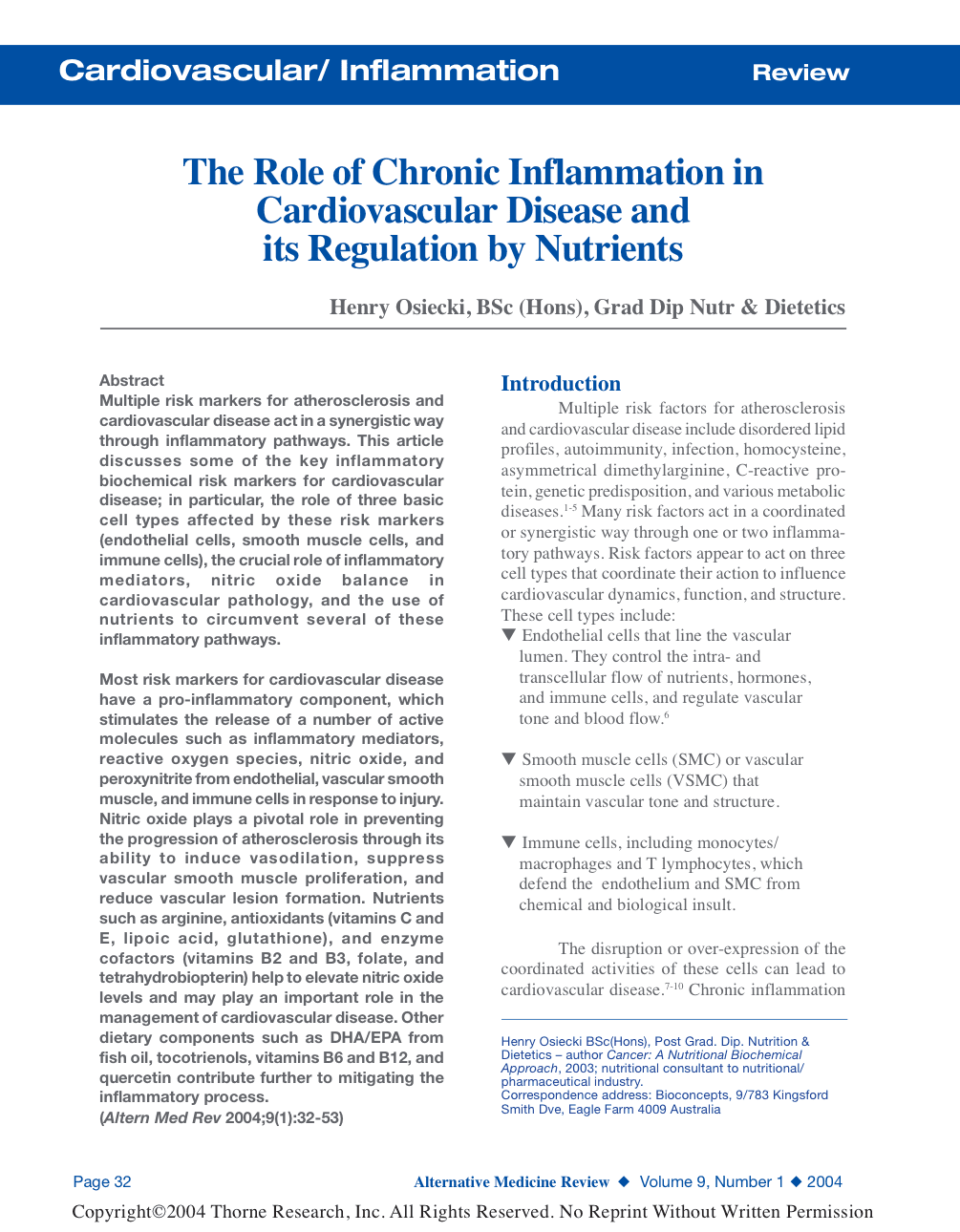Abstract
Multiple risk markers for atherosclerosis and cardiovascular disease act in a synergistic way through inflammatory pathways. This article discusses some of the key inflammatory biochemical risk markers for cardiovascular disease; in particular, the role of three basic cell types affected by these risk markers (endothelial cells, smooth muscle cells, and immune cells), the crucial role of inflammatory mediators, nitric oxide balance in cardiovascular pathology, and the use of nutrients to circumvent several of these inflammatory pathways. Most risk markers for cardiovascular disease have a pro-inflammatory component, which stimulates the release of a number of active molecules such as inflammatory mediators, reactive oxygen species, nitric oxide, and peroxynitrite from endothelial, vascular smooth muscle, and immune cells in response to injury. Nitric oxide plays a pivotal role in preventing the progression of atherosclerosis through its ability to induce vasodilation, suppress vascular smooth muscle proliferation, and reduce vascular lesion formation. Nutrients such as arginine, antioxidants (vitamins C and E, lipoic acid, glutathione), and enzyme cofactors (vitamins B2 and B3, folate, and tetrahydrobiopterin) help to elevate nitric oxide levels and may play an important role in the management of cardiovascular disease. Other dietary components such as DHA/EPA from fish oil, tocotrienols, vitamins B6 and B12, and quercetin contribute further to mitigating the inflammatory process. (Altern Med Rev 2004;9(1):32-53)

